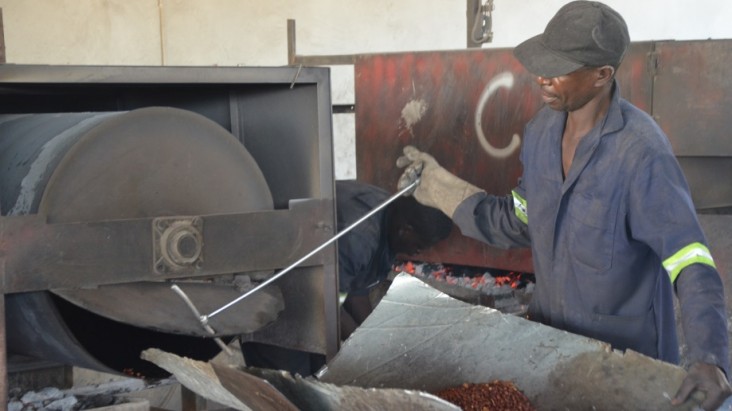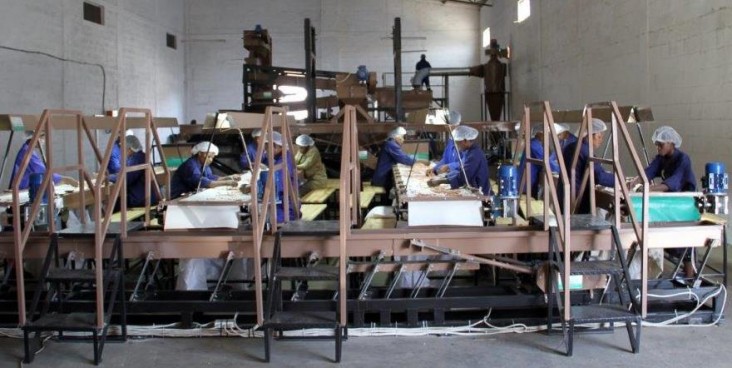Peanuts (known locally as “groundnuts”) are a strategic crop for improving small farmer incomes and food security in sub-Saharan Africa. However, a barrier to trade is contamination with aflatoxin, a carcinogenic mold that contributes to chronic health problems and food insecurity. As a result many markets have been closed to Zambian peanuts and the 500,000 households that grow them. With new equipment, quality seed and market linkages from a USAID grant to Central African Seed Services (CASS), the Jungle Beat factory in Lusaka has become an efficient production unit able to screen for aflatoxin and buy peanuts from thousands of small farmers. Its first export order for 24 metric tons went to Madagascar to make a ready-to-use therapeutic food that fights malnourishment. With efficient processing, African peanuts can supply humanitarian feeding needs while benefitting small farmers.

BEFORE

AFTER







Comment
Make a general inquiry or suggest an improvement.